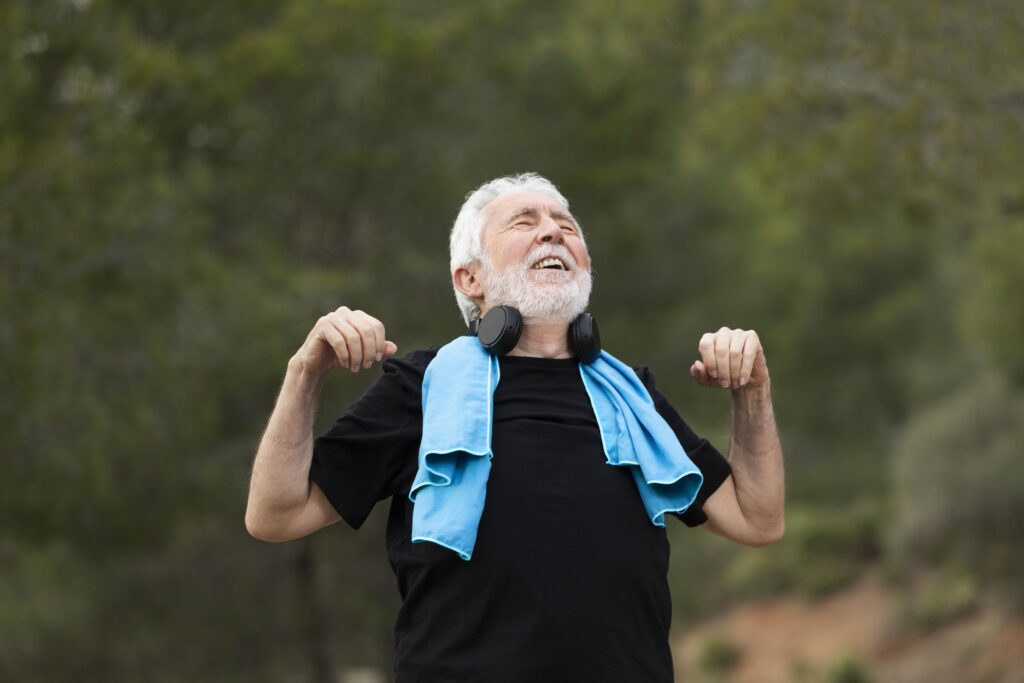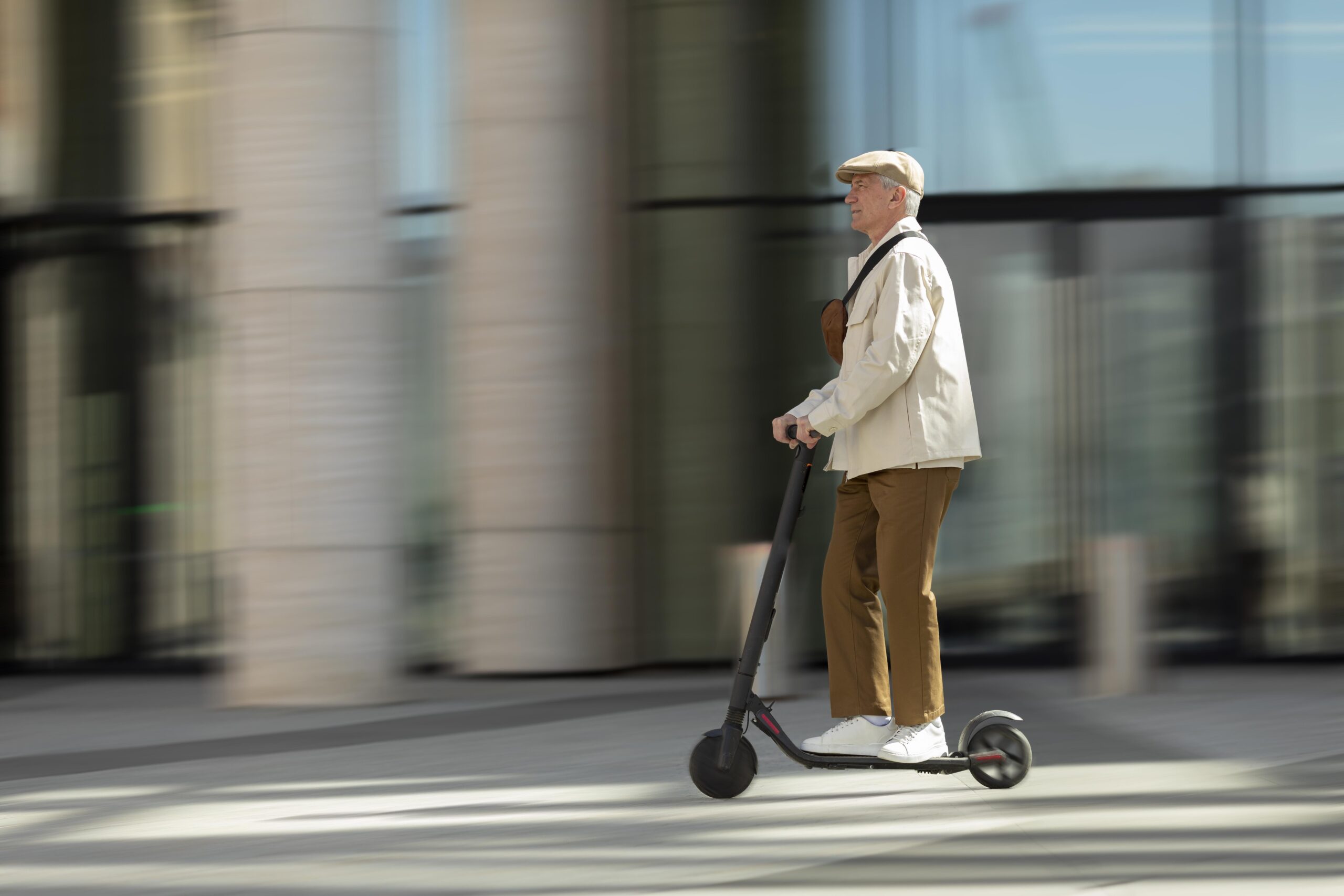Why Mobility Matters More Than Ever in Your Later Years
Let’s be real — aging is inevitable. But how you age? That’s where you’ve got more power than you think.
The Link Between Mobility and Independence
Mobility is your golden ticket to freedom. It’s what lets you hop out of bed, walk to the kitchen, chase your grandkids in the yard, and explore the world. Without it? You start depending on others. And who wants that, right?
Mobility and Mental Health: The Overlooked Connection
Here’s something most folks overlook: your legs and your brain are more connected than you think. Studies have shown that regular movement boosts endorphins, clears the mind, and keeps anxiety at bay. You’re not just moving your body — you’re moving your mood too.
Common Mobility Challenges as We Age
Let’s not sugarcoat it. The body changes with time. But knowing what you’re up against helps you fight smarter.
Muscle Weakness and Joint Pain
Muscles shrink. Joints stiffen. Movements that were once effortless now come with a little grunt. This is common, but not unstoppable.
Balance and Coordination Issues
Ever tripped over nothing? That’s your balance talking — or maybe yelling. As you age, your inner ear and nervous system take a hit, making falls more likely.
Arthritis, Osteoporosis, and Other Medical Conditions
Arthritis is that annoying guest that never leaves. And osteoporosis? It’s the silent bone thief. Both can limit your range of motion and make walking feel like a chore.

The Ripple Effects of Poor Mobility
Mobility issues don’t just affect your body. They spill into every area of your life.
Social Isolation and Loneliness
When you can’t get around, you start canceling plans. Before you know it, your world shrinks. And let’s be honest — loneliness stings.
Increased Risk of Falls and Injuries
One bad fall can lead to months of recovery or worse. Mobility issues turn everyday tasks like taking a shower or climbing stairs into risky business.
Loss of Independence and Quality of Life
Imagine needing help to dress, cook, or even get to the bathroom. It’s not just inconvenient — it chips away at your dignity.
Benefits of Maintaining Good Mobility
Now let’s flip the script. Keeping your mobility intact doesn’t just help you survive — it helps you thrive.
Improved Cardiovascular and Respiratory Health
Walking, swimming, even light dancing — all keep your heart and lungs humming. That’s years added to your life.
Enhanced Mood and Cognitive Function
A moving body equals a sharp mind. Regular activity improves memory, sharpens focus, and kicks depression to the curb.
Longer Life Expectancy and Better Living
Staying mobile adds more candles to your birthday cake — and makes sure you’re strong enough to blow them out.

How to Improve and Maintain Mobility as You Age
Here’s where we move from problem to solution. It’s time to take control.
Stay Physically Active Every Day
Your body was made to move. And it doesn’t need to be intense.
Low-Impact Exercises for Seniors
Think walking, swimming, tai chi, or cycling. These keep joints happy and your heart healthier than ever.
Stretching and Flexibility Routines
Ten minutes of stretching in the morning? Game-changer. It loosens tight muscles and keeps your body agile.
Strength Training is Not Just for the Young
Yep, even grandma should lift weights — light ones. Strength training maintains muscle mass, supports joints, and improves posture.
The Role of Balance Training in Fall Prevention
Practice standing on one foot. Use a balance board. These simple activities help you stay steady in everyday life.
Nutrition’s Role in Joint and Muscle Health
Feed your mobility. Omega-3s for inflammation, protein for muscles, calcium and vitamin D for bones — your plate is your first medicine cabinet.
Assistive Devices and Tools that Help with Mobility
There’s no shame in using a little help. It’s smart.
Walkers, Canes, and Braces
Modern mobility aids aren’t clunky — they’re sleek and empowering. Find one that suits your style and stride.
Mobility-Friendly Home Modifications
Grab bars in the shower, non-slip rugs, raised toilet seats — small changes that make a massive difference.
When to Seek Professional Help
Sometimes, a little expert guidance goes a long way.
Physiotherapists and Occupational Therapists
These pros design custom plans to restore your mobility. They’re like personal trainers for your movement.
When Surgery Might Be an Option
For severe arthritis or hip issues, surgery might be necessary. And thanks to modern medicine, recovery is faster than ever.
The Mindset Shift: Embracing Aging with Strength
Aging doesn’t have to mean decline. It can mean growth, wisdom, and — yep — strength. The trick? Stay curious. Stay moving. Stay defiant against stagnation.
Conclusion
Mobility isn’t just about moving from point A to point B. It’s about living life on your terms. It’s about dancing at weddings, walking in the park, playing with your grandkids, and simply enjoying your independence.
Aging is a privilege. But thriving as you age? That takes work, intention, and a commitment to keep moving — one step at a time.
FAQs
1. What’s the best exercise to improve mobility for seniors?
Walking is a great start, but combine it with stretching, strength training, and balance exercises for the best results.
2. How can I tell if I’m losing mobility?
Warning signs include difficulty standing up, slower walking pace, unsteadiness, and frequent stiffness or joint pain.
3. Is mobility loss inevitable with age?
Nope! While some decline is natural, much of it is preventable with the right habits and routines.
4. Can mobility be improved after 70?
Absolutely. It’s never too late. With consistent activity, even those in their 80s and 90s have seen major improvements.
5. Are mobility aids a sign of weakness?
Not at all. They’re tools for freedom, safety, and confidence. Using them smartly is a sign of strength, not weakness.

